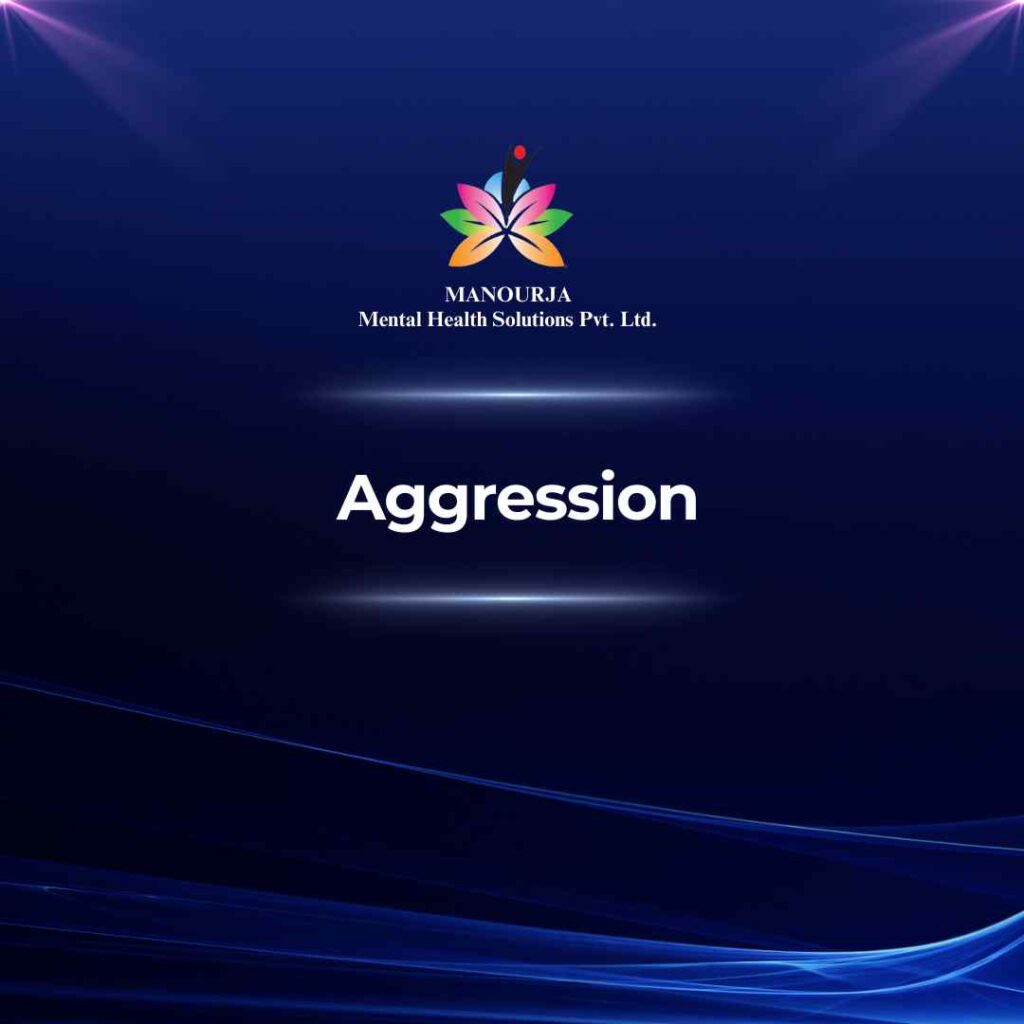Aggression

Aggression refers to behaviors that are hostile, harmful, or violent, intended to dominate or harm another person physically or psychologically. It can be expressed verbally, physically, or through actions that are intended to inflict damage or control over others.
Aggression as a Sign and Symptom of Mental Illness
In the context of mental illness, aggression can be a significant symptom indicating underlying psychological or emotional distress. It can manifest as:
- Verbal Aggression: Yelling, insults, threats, or abusive language.
- Physical Aggression: Hitting, kicking, pushing, or other forms of physical violence.
- Indirect Aggression: Manipulative behaviors, spreading rumors, or other non-physical forms of harm.
Aggression in mental illness often results from an inability to manage emotions effectively, frustration, fear, or misinterpretations of others’ actions. It can severely impact relationships, work, and overall quality of life.
Mental Illnesses Associated with Aggression
Intermittent Explosive Disorder (IED):
- Characterized by sudden episodes of unwarranted anger. The individual may experience frequent aggressive outbursts that are disproportionate to the situation.
- Diagnosed primarily in children and adolescents, this disorder involves a pattern of violating societal norms and the rights of others, including aggressive behaviors.
Borderline Personality Disorder (BPD):
- Individuals with BPD may exhibit intense and inappropriate anger, often in response to perceived abandonment or rejection.
- During manic or hypomanic episodes, individuals may become irritable and exhibit aggressive behavior. Depressive episodes can also sometimes lead to frustration and aggression.
- While not all individuals with schizophrenia are aggressive, some may exhibit aggressive behaviors due to paranoia, delusions, or hallucinations.
Post-Traumatic Stress Disorder (PTSD):
- PTSD can lead to irritability and aggressive behavior, especially if the individual feels threatened or reminded of traumatic experiences.
Substance Use Disorders:
- Abuse of substances like alcohol, stimulants, or other drugs can lead to increased aggression and violent behaviors.
Autism Spectrum Disorder (ASD):
- Some individuals with ASD may exhibit aggression, often due to frustration, sensory overload, or difficulties in communication.
Antisocial Personality Disorder (ASPD):
- Characterized by a long-term pattern of disregarding the rights of others, individuals with ASPD may display aggressive and violent behaviors without remorse.
Understanding aggression as a symptom of these mental health conditions can help in developing appropriate treatment plans, which may include psychotherapy, medication, anger management programs, and support for both the individuals and their families to manage and mitigate aggressive behaviors effectively.
At MANOURJA, we believe in the transformative power of counseling. Our experienced therapists offer a safe and supportive space where you can explore your thoughts, emotions, and challenges. Through personalized counselling sessions, we’ll work together to develop coping strategies, build resilience, and achieve lasting positive change. Discover the path to a healthier, happier you with MANOURJA counselling services.
MANOURJA Rehabilitation Services
At MANOURJA, we’re dedicated to helping you in rebuild your life, after difficult times. Our rehabilitation services focus on understanding what you need to move forward, whether you’re recovering from addiction, trauma, or any psychological – social challenges. We create personalized plans, that are all about helping you, regain your strength and find hope again. With a caring team by your side, you’ll have the support to make real progress and take steps toward a brighter, healthier future.
